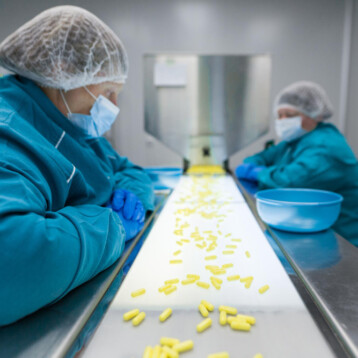|
Hospitals are a dangerous place even for healthy people and even more so for patients, due to the great number of infections endangering the habitants. Patients who rely on a mechanical ventilator usually have weakened immune systems and higher resistance to antibiotics and can easily develop serious infections. Among the most dangerous infections developed by long-term hospitalized patients is Ventilator-Associated Pneumonia (VAP), a lung infection that develops in about 15% of all patients who are ventilated – mortality rates of these patients are frighteningly high, ranging from 33% to as much as 50%. Finding a way to reduce the number of patients who develop VAP can therefore save many lives, while also saving a considerable amount of money spent on treatment.
At all times, our teeth and oral cavity contain a colony of normally harmless bacteria. An infectious process begins when a breathing tube provides the harmless bacteria a route into the lower parts of the lung. The bacteria travel down the tube using small droplets of water. On arrival, they take advantage of the patient’s weakened immune system and multiply, causing VAP (and other diseases).
Nurses from the Tel Aviv University have suggested and tested a simple method which was shown to reduce VAP risk. The method does not cost much to implement and is very easy to carry out using nothing but an ordinary toothbrush. Brushing the teeth three times a day, even for unconscious patients, reduced the onset of pneumonia by as much as 50%.
The researchers say it’s difficult to quantify these results precisely. “While the research shows a definite improvement in reducing the incidence of hospital-borne pneumonia, it’s hard to say by exactly how much tooth brushing prevents VAP,” says Nurse Ofra Raanan, chief researcher of the study and lecturer at Tel Aviv University’s Department of Nursing. However, she says it is clear that a direct correlation exists between tooth brushing and VAP prevention as this approach clearly increases the chances of survival for the intubated patients.
Other steps are currently taken in hospitals to prevent the onset of VAP. Typically, nurses use a mechanical suction device which removes secretions from the mouth and throat. They also switch the patient’s position every few hours and normally keep the bed head at a 45 degree angle. Tel Aviv nurses now say that tooth brushing should be added to the caring routine in all hospitals around the world – this simple method, they say, will undoubtedly save many human lives.
TFOT has recently covered a story featuring the connection between chronic pneumonia and cancer, researched at the University of Pennsylvania School of Medicine. You are also welcome to read our article on hydrogen-producing bacteria, which could be used to produce clean energy.
More information on the research can be found in a press release at Tel Aviv University’s official website.











